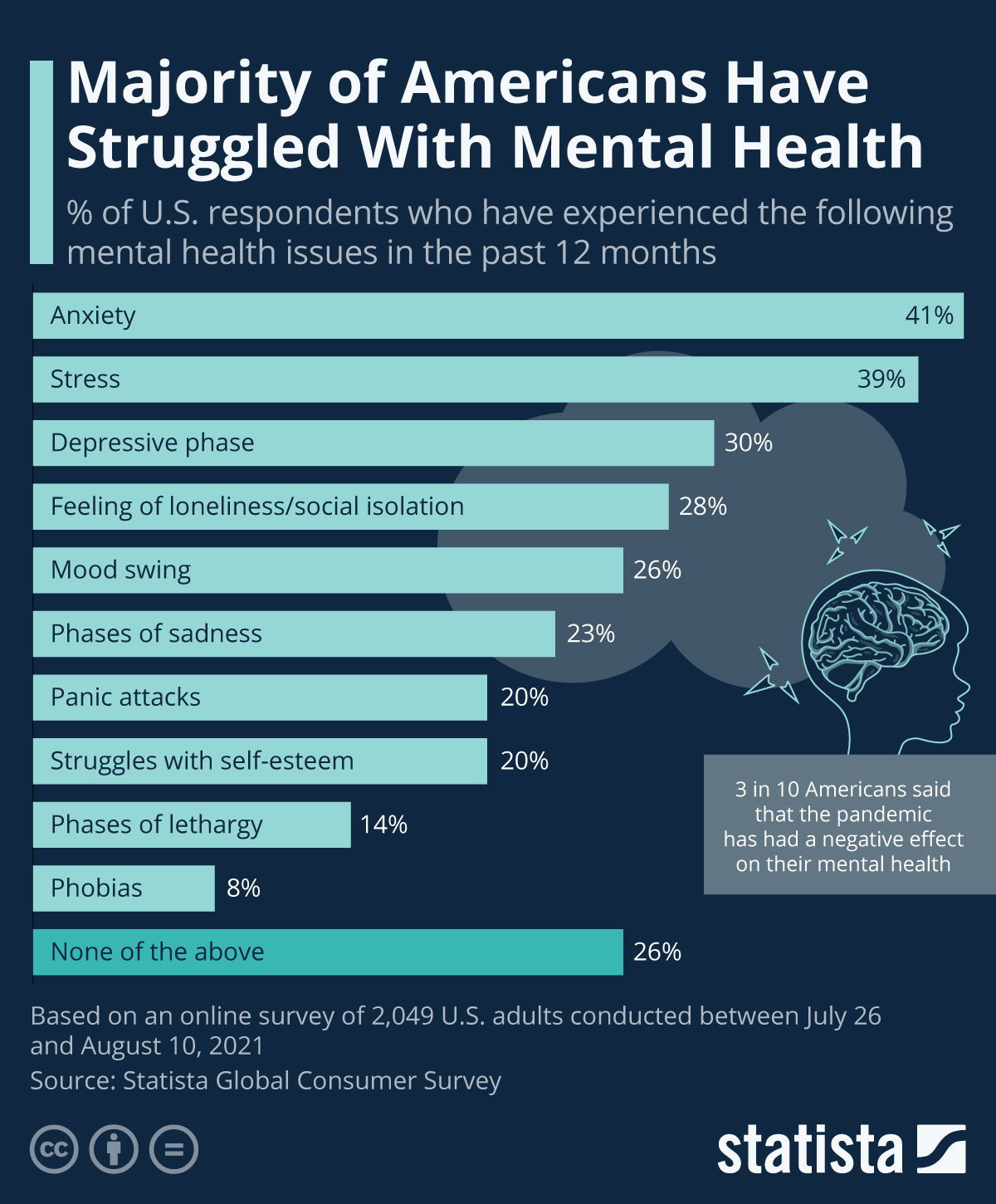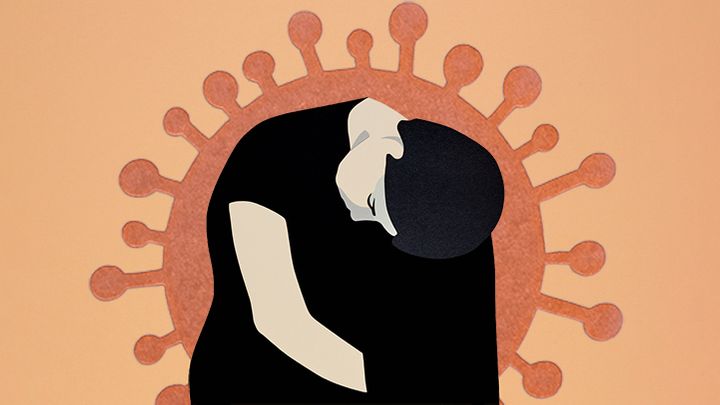By Leon Bahrman
If you’ve been feeling lonely, anxious, isolated and depressed, you are not alone! We’ve all felt these things in varying degrees since at least February of 2020. This isn’t a dismissal of how you’ve been feeling, though! Unfortunately, we’re all in the midst of a global mental health crisis, unseen in the history of the world!
While so many feel the same, your individual wellbeing is no less important. The universal scope of this pandemic need not drown out your needs for peace and happiness.
Since the pandemic began, how many have experienced a downturn in their mental health?
According to a recent article , many now struggle with mental health issues:

You can see there are all kinds of mental health conditions arising from the pandemic. Anxiety, stress, and depression unfortunately top the charts!
In this article, we seek to explore how we at ThoughtWise can be of help during these trying times.
The world in a pandemic
Like the ‘boiling frog’ analogy, there are so many issues affecting us. Each problem presented by this pandemic is its own challenge. But in their totality, they all have a gradual impact on our mental health.
Let’s consider the size of this pandemic, and how it affects us on many levels:
Mask wearing
Lockdowns
Family tensions during lockdown
Isolation
Social distancing
Vaccinations
Getting COVID-19
Loss of loved ones
Fear of getting the disease
Job loss
Anxiety about the future
Political turmoil
Economic downturn
Incessant and biased news coverage
Social media
Censorship
Increase in alcohol and substance abuse
Behavioral addictions
It’s not like we have to pick and choose from this list, as almost every item has affected us all in varying degrees. And if you’ve already been facing mental health issues, these things have only worsened them. Or, if you were healthy before the pandemic, the statistics show an increase in new diagnoses.
Let’s face it, we’re all social creatures. It’s natural to be able to see each other’s faces. We’re meant to interact with our environment, with each other and to socialize. It’s understood that the things I’m about to list off are government mandates. But consider, mask wearing and social distancing has worn on us all, as if we were prisoners of war. Is this an exaggeration? Isolation and social distancing are what occurs to POW’s to break them down.
What effects have all these things had on us? Depression, anxiety, addictions, loneliness, isolation, and self-harm are all possibilities.
Internalizing our emotions
To make matters worse, we tend to internalize our feelings. There are many who had preexisting mental health issues who already know how to reach out. But for many with new issues from the pandemic, the response is to internalize our feelings.
According to Frontiers in Psychology, there’s a link between loneliness and internalizing the symptoms. This includes depression, anxiety and stress. The article suggested an automatic reaction of internalizing our emotions due to loneliness. We regulate our emotions naturally, but loneliness upsets this ability. We thus have a tendency to internalize symptoms of depression and anxiety. This study occurred in the context of the COVID-19 lockdowns.
Is it healthy to internalize our feelings?
According to a series of studies, suppressing our emotions increases the chance of:
- premature death by 30%, and
- risk of a cancer diagnosis by 70%
Those are long term considerations. But there are short term affects on our physical and mental wellbeing also. Provisional clinical psychologist Victoria Tarratt states,
“Suppressing your emotions, whether it’s anger, sadness, grief or frustration, can lead to physical stress… The effect is the same, even if the core emotion differs… We know that it can affect blood pressure, memory and self-esteem.”
It is well known that avoiding emotions actually make them stronger and harder to deal with. Think of how many of us may be experiencing loneliness because of the pandemic. And with a tendency to suppress our emotional symptoms, how many of us go undiagnosed?
We’re definitely not helping ourselves by hiding our feelings. Instead, we’re creating a worst case scenario for ourselves if we don’t find a way to reach out and get the help we need.
Getting professional help
There is no shame in reaching out for help if you need it. Even if you’ve had no issues before the pandemic, it may be time to face the effects that all this has had on you. If ever there was a time when we’re all ‘in the same boat’ facing the same issues, it’s this COVID-19 pandemic. No one can fault you for reaching out and getting the help that you need.
We at ThoughtWise offer professional and compassionate care. We offer diagnoses and treatment for you or your loved ones during this global health crisis. What kinds of related services do we offer?
We can perform our therapies online or in person. We’ll meet your comfort level, or whatever the current crisis conditions demand.
At the risk of being repetitive, we may be quite used to dealing with our emotional health in a private way. If, say, we lost employment or broke up with a love interest, we’ll tend to internalize these things. But these are far from normal times. Please, do not underestimate the potential impact this may be having on you or your loved ones. If you’re experiencing anxiety, depression, stress, or loneliness, please reach out.
Conclusion
This is an unprecedented time in all our lives, being in this global pandemic. And although we’re all affected, this by no means minimizes your own hurt, your pain, or your loneliness. None of us can claim exemption from the effects of this virus and its variant forms. Yet, we may be artful in our ability to hide the pain, and internalize the symptoms of an unspoken need.
We owe it to ourselves or our loved ones to reach out and use the help provided, such as we offer here at ThoughtWise. Please, don’t hesitate to get in touch with us and explore what we have to offer for diagnoses and treatment.
While the pandemic can make us all feel isolated, we are never alone.

